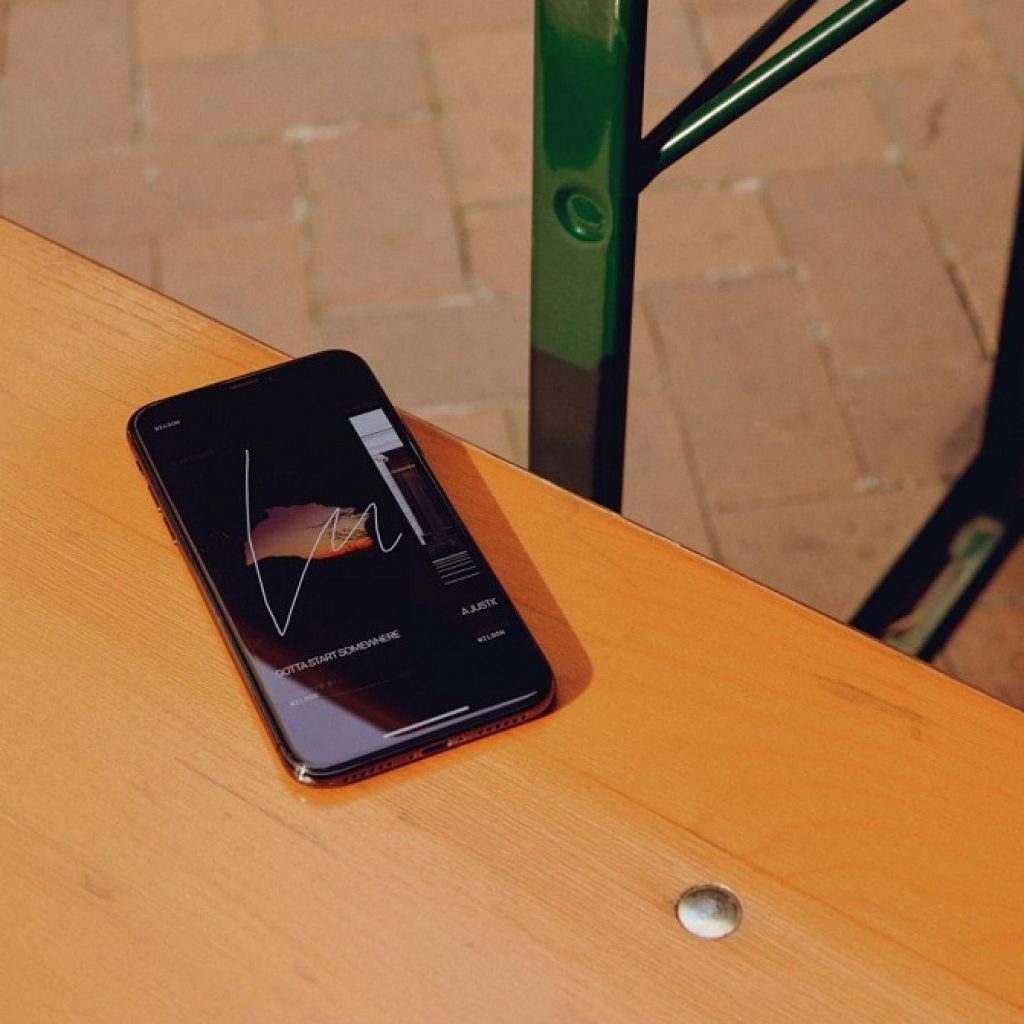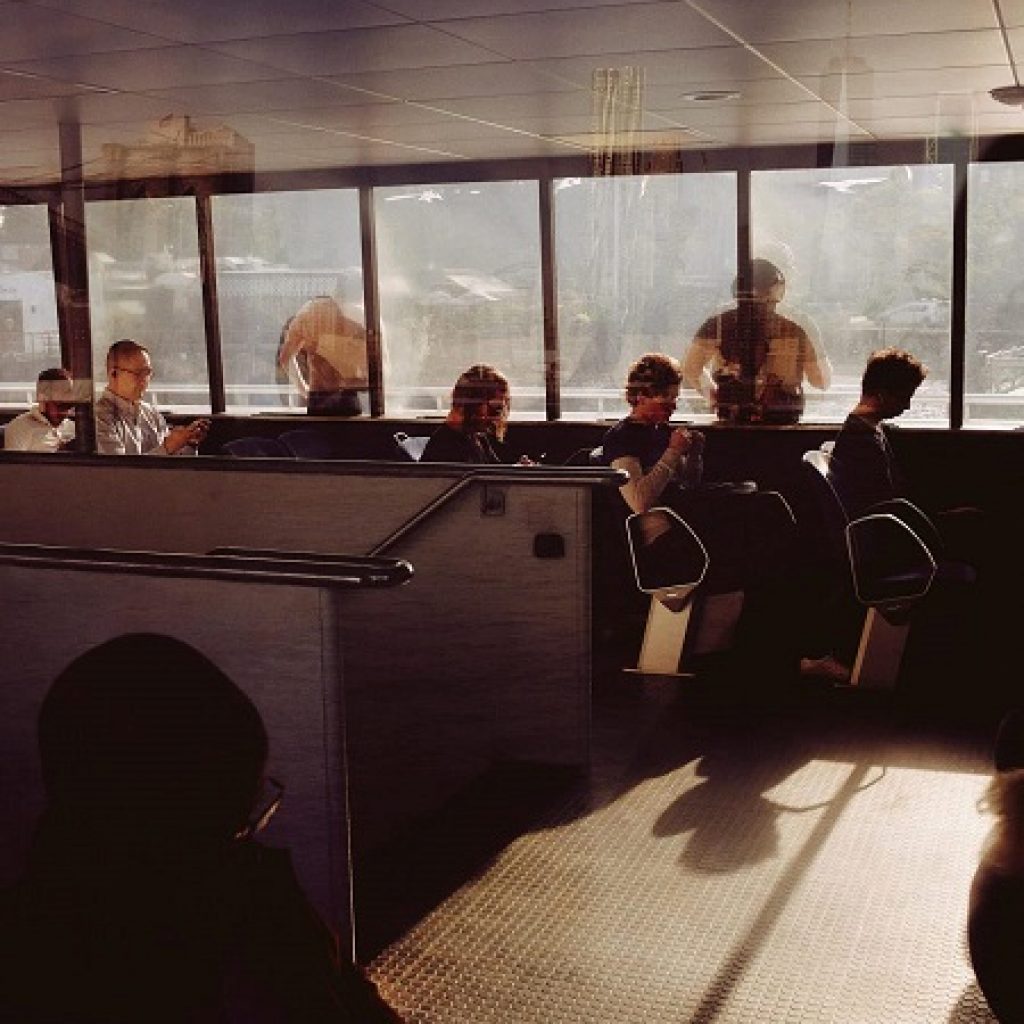Podcast app.
What images does that immediately conjure up? A bit of album art? Buttons for pausing, playing, skipping to the next track, going back 30 seconds? A cold sterile, “tech-y” experience?
Most if not all podcast apps in the current podcast 2.0 era fall within those parameters. Until Wilson entered the space. Wilson is conceptually unlike any of its predecessors. Yes, it plays podcasts, but its high-level of human touch and curation helps users find context and clarity on topics and narratives. At its simplest, it’s a curated series of podcasts built into weekly issues or lists.
But it’s arguably much more. Wilson provides clarity through cohesion. Topics are carefully chosen to have a perspective and the ensuing selections crystallize those ideas. This app pushes against what is often a frustrating podcast discovery experience where the search for new content usually happens everywhere but within your podcast app of choice. New podcasts are found through word-of-mouth or research done on the side rather than relevant suggestions within apps.
Five minutes into my call with Allan, who was gracious enough to speak to me late in the evening, the philosophy behind Wilson is apparent. Timing, though, is integral to Allan’s story. Wilson sat dormant as an idea for almost three years before a hiccup in Allan’s life at the start of 2018 forced his hand into taking one last shot at something before packing his bags and starting a new life in Berlin.
Over the course of our conversation, it seemed as though the initial success of Wilson validated all of the ideas Allan had brewing in his mind. It took one win (a big one at that) to make real the things he knew all along. That innate perspective is something he firmly believed in, but hadn’t previously shared with the rest of the world.
To learn more about Wilson, visit the website or download it now on the Apple App Store. Also, check out our curated playlist for Wilson, which includes some of our favorite podcast episodes from everywhere.

So, let’s start right at the beginning. How did Wilson start?

To take it back even before that, you seem to have a slightly different entry point into this space. What was your background like growing up?


So what did you land on from there?
And the initial reaction was…
Do you feel that Wilson’s strength lies in a voice and a perspective?
Do you see Wilson as a direct pushback against how apps are designed and how tech intersects with our lives?
What else about the underpinnings of tech bother you?


What about the positive side?
I want to leverage scalability and money and how fast money can take you to a destination for your product. Money is fuel for me and the most amount of fuel you can get right now is in the tech industry. So, when you have a good idea and you’re earnest with it, you can take that fuel and go really fast. The sensibility and scalability of tech is amazing. You can’t say that for any industry. But the culture, the people there, and the design—assumptions that people have that it’s boring, gross, and overdone.
What’s your perspective on the current crop of podcast apps?
They’re all mad corny and all of them sucked. There’s nothing that’s good. Everyone is trying to be a better player. But that doesn’t work out because Apple still wins the game. And there’s no point of view and no experience that’s 10x or 100x better than what I’ve seen. So everything fell short. A lot of them are focused on power users. Overcast is a very power user-focused thing. They’re not discover-friendly. You have to know what you’re looking for and their search experience is almost impossible. But then the people who try to do a better search experience, they become either inauthentic because it’s people trying to promote their own weird shitty content as premium, or they’re using that top 10 shit. I know the top 10 everywhere is a top 10 everywhere period. You know, Fresh Air, This American Life, Joe Rogan—I’m not getting new content.

You see a fundamental need to shift how we look at podcasts. You’re right in that when you look at media in general, you might recommend a title but then focus in on an interesting article you just saw.
So, the name, where did it come from? I often find the attribution of human names to tech interesting, especially in an app setting haha.
One of the things that strikes me the most is the different visual approach of Wilson. Where does this stem from?


Yeah, you mentioned you have a great interest in the album cover. That visual piece has sort of gone the wayside in the digital era. It no longer has the same pull as it once did, sitting on a shelf at a record store, or even as a book cover you examine while commuting on the train or bus.
This is your first endeavor being your own boss. What do you think of it all? It seems you have a pretty clear point-of-view.

Where do you see Wilson heading?
Since launching Wilson, what did you expect it to be, and what has been the reality?

If you want to learn more about Wilson, visit the website or download it now on the Apple App Store. Also, check out our curated playlist for Wilson, which includes some of our favorite podcast episodes from everywhere.
The changing cannabis landscape has in large part to do with relaxed legislation in the U.S. The industry’s infancy has meant that we’ve witnessed changes take place before our eyes, as well as amongst a single generation of cannabis users. In this MAEKAN Session, we spoke with artist Ryan Fenchel, Ariel Stark-Benz of Mister Green, Joie Meffert of Apothecanna, and Bert Youn of The Good Liver.
Over the course of the conversation, some key themes surfaced including the differences between street and dispensary experiences, the potential for corporate monopolies, the community of indie cannabis brands, the role of celebrities as vehicles towards mainstream acceptance, and finally, the influx of “tech geeks” in the cannabis space.
Head over to Summerland to check out the beautiful ceramic bongs that Ariel of Mister Green mentioned in this MAEKAN Session.
“I almost look at the tech world as being a pretty good match for the cannabis industry because there are so many nerdy stoners who’d love to get a piece of this action.”
— Ariel Stark-Benz of Mister Green details a fast-growing symbiotic relationship in the cannabis space


“There [are] people who just enjoy the plant and they just started growing it. And then at some point [they] started selling it and had a really low-level operation that all of a sudden became quite lucrative.”
— Ariel Stark-Benz of Mister Green on how and why some people get involved in the cannabis industry in the first place



























